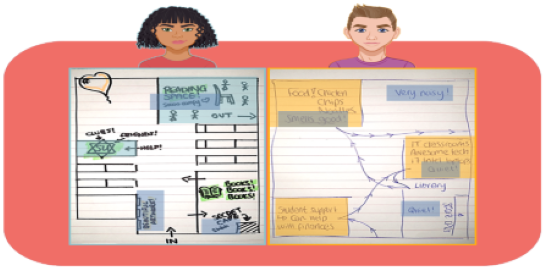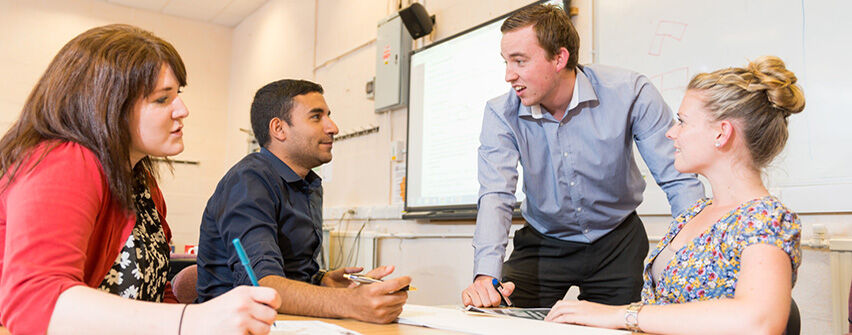
Blog

Young people from less advantaged backgrounds have both comparably lower Higher Education (HE) progression rates and higher withdrawal rates than their more advantaged peers.
Despite ongoing efforts of Widening Participation (WP) teams to help remove barriers and create a greater sense of belonging for these individuals, progression gaps remain. In facilitating meaningful engagements with HE, a popular method employed by fellow WP practitioners is to run the classic ‘university campus experience day’.
Reflecting critically, how effective are these days in achieving Widening Access goals? And how might key principles of critical pedagogy achievably and creatively enhance our everyday praxis?
As we approach the end of another academic year, several higher education (HE) providers continue to revisit, review and refocus their Access and Participation Plans (APPs). Following the appointment of John Blake as their new Director for Fair Access and Participation, the Office for Students (OfS) made an announcement of the new and refreshed priorities for Access and Participation. Key priorities outlined include attainment raising through partnership working, improving the quality of evaluative measures and the accessibility of APPs for prospective students and stakeholder audiences. Several providers continue to work through reviewing, reframing and refocussing their APP priorities. Whilst some colleagues welcomed the criticisms Nadhim Zawahi wrote of WP-recruitment in his letter, several others have shared concerns of meeting increasing performance pressures with decreasing resources.
HE outreach can be hard hit by funding, staffing and time constraints. As a result of such constraints, Paolo Freire’s Banking Model of Education become a default method of delivery for HE Outreach activities. Freire’s book ‘Pedagogy of the Oppressed’ describes this system as valuing teacher knowledge over student knowledge. This hierarchal and often one-sided approach can result in students passively receiving to memorise, like an empty container to be filled (Freire, 1996). Linking back to HE outreach activities like campus experience days, I’ve observed from my professional experience that campus tours can at times be more reliant on Freire’s Banking Model. In such instances, the tours have followed a timed, pre-determined route at pace as key facts and figures about the university are recited to visitors. This can result in less time for questions, or further exploration of areas that they may wish to view in more detail.
This may sound like a familiar experience; Whilst this may not be considered a significant detriment, I’m of the opinion that instances like this may further compound the complex barriers to entry these individuals already experience. If practitioners presume that all the learning needs of visiting young people have been met through a swift march around campus, then there may be less opportunity to have true dialogue and properly assuage any concerns. If this isn’t rectified, this can rapidly result in programme disengagement and some individuals unnecessarily deciding that HE isn’t for them.
So how can we overcome instances like this? By considering and implementing critical pedagogy theories and creative methods, I believe we can innovate the way these everyday outreach activities are delivered and reduce the levels of Banking Model method. Critical Pedagogy can equip us to engage in meaningful dialogue, question the status quo and understand our impact on the world around us. Freire advocated for dialogue and awareness, and bell hooks builds on Freirian pedagogy by promoting fun and playful engagement in teaching and learning practices (hooks, 1994). Ira Shor (1992) also encourages individuals’ contextual and situational understanding through reflective speaking, writing and reading about the world. Within the HE outreach context, this could enable students to explore beyond HE myths and misconceptions.

Having outlined some key theories, how could this innovate campus tours in practice?
Adopting concepts from psychogeography, students would be asked to visually map and record their experiences, following prompts such as:
- What can you see, hear or smell?
- Do the spaces remind you of anything?
- How do they make you feel?
- Who are you sharing this space with?
- What are those people doing?
Described by Merlin Coverley (2006) as the point “where psychology and geography collide”, psychogeography explores the effect our environment has on our behaviours and emotions. Moving through spaces and observing found places allows for moments of reflection; recording sensory experiences by writing, drawing and photography engages psychogeographers in an explorative but focussed way. It’s also creative and playful, aligning with both the aims of a campus tour and with bell hooks’ emphasis on fun pedagogy. Participants are provided with an opportunity to create and co-create their own knowledge, as well as a novel and positive engagement with HE.
Innovation doesn’t mean we have to reinvent the wheel. This approach can and should be accessible for all HE Outreach practitioners, tweaked and adapted to suit the needs of those participating and facilitating alike. I also see great potential to further develop this idea with critical theories on embodiment, affect and spatial pedagogies, experiential learning and creative method pedagogies too. For now, this is a starting point. An opportunity to facilitate more meaningful experiences and foster their sense of belonging in HE.
References
Coverley, M. (2006) Psychogeography : The Pocket Essential Guide. [e-book] Pocket Essentials. Available at: https://ebookcentral.proquest.com/lib/bcu/detail.action?docID=282678
Freire, P. (1996) Pedagogy of the oppressed. [20th anniversary ed.]. London: Penguin.
hooks, b. (1994) Teaching to Transgress. [e-book] Taylor & Francis Group. Available at: https://ebookcentral.proquest.com/lib/bcu/detail.action?docID=1656118
Kelly, F. (2020) ‘Hurry up please, it's time!’ A psychogeography of a decommissioned university campus. Teaching in Higher Education, 25(6). Available at: https://doi.org/10.1080/13562517.2020.1746263
Shor, I. (1992) Empowering Education. Chicago: University of Chicago Press.
